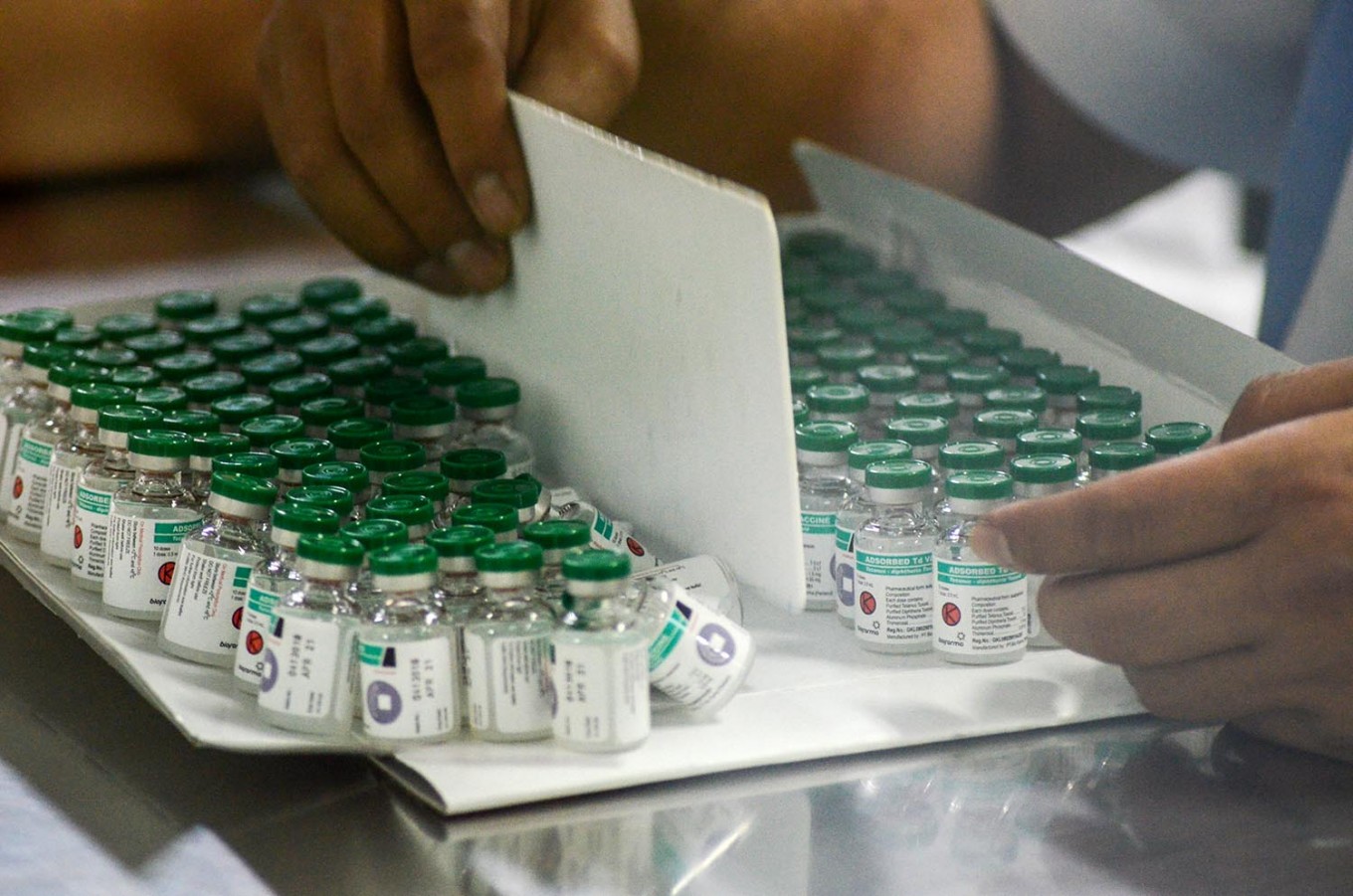Popular Reads
Top Results
Can't find what you're looking for?
View all search resultsPopular Reads
Top Results
Can't find what you're looking for?
View all search resultsSinovac-Bio Farma COVID-19 vaccine ‘ready’ in early 2021
Bio Farma is ready to launch a Phase III clinical trial for a COVID-19 vaccine produced by China-based biopharmaceutical company Sinovac in Indonesia before authorities authorize its widespread usage.
Change text size
Gift Premium Articles
to Anyone
S
tate-owned pharmaceutical holding company PT Bio Farma claims a COVID-19 vaccine developed in cooperation with China-based biophramaceutical company Sinovac Biotech will be ready for domestic use by as soon as early next year.
Bio Farma president director Honesti Basyir said the company was ready to launch a Phase III clinical trial for the vaccine in Indonesia before authorities authorize its widespread usage. The trial was made possible thanks to the collaboration with Sinovac, which allowed a transfer of technology and vaccine substances between the two companies, he went on to say.
During a press briefing on Thursday, Honesti said the trial would commence soon in cooperation with Padjajaran University in Bandung, West Java, as well as the Health Ministry's research and development agency.
“It is anticipated that the preliminary result of this Phase III clinical trial can be submitted for emergency use authorization by the BPOM [Indonesian Food and Drug Monitoring Agency] by the first quarter of 2021,” Honesti said.
He added the vaccine substances sent from China would be formulated in Bio Farma facilities. The Phase III trial in Indonesia would involve nearly 1,600 volunteers and be funded by Bio Farma.
Once the BPOM authorizes its usage in the country, the pharmaceutical company will produce the vaccine to meet national needs.
Honesti claimed Bio Farma's existing facility had the capacity to produce 100 million doses, but it could increase to 250 million as the company was building a new facility, slated to begin operations by the end of this year.
The president director said Bio Farma decided to work with Sinovac because of the latter's product portfolio, which had passed the World Health Organization (WHO) prequalification assessment.
"It is evidence that Sinovac has implemented a robust quality management system," he said, praising the company for being among the first companies to conduct Phase III clinical trials for the vaccine in more than 30 countries outside China.
Bio Farma is currently in discussions with the Bill Gates-baked Coalition for Epidemic Preparedness Innovations (CEPI) over conducting clinical trials and increasing manufacturing capacity. Honesti claimed the CEPI was currently reviewing Indonesia's proposal.
Bio Farma is also working to develop a COVID-19 vaccine under the national consortium led by the Ejikman Institute for Molecular Biology that also involves relevant ministries, institutions and universities.
However, the consortium might not be able to finish the first phase of the vaccine development of delivering a prototype clone until February 2021.
The pharmaceutical company predicted that a preclinical study under the national consortium could be launched in the second quarter of 2021, followed by a Phase I clinical trial in the third quarter of next year. Honesti said the vaccine could be available for mass production by the first quarter of 2022 at the earliest.
Indonesian researchers and authorities have assured that COVID-19 vaccine testing on animals and humans will meet ethical standards and undergo strict procedures, as animal rights organizations have objected to animal testing in formulating the vaccine.
Indonesian Food and Drug Monitoring Agency (BPOM) head Penny K. Lukito said researchers must clearly and objectively explain their research to their human subjects, who would have to give consent before continuing the trials. The vaccine prototypes also have to go through animal trials to prevent adverse effects in humans and assure the vaccine’s safety and effectiveness.
A 2015 BPOM regulation on clinical trial procedures also requires the study sponsors to report any “serious” adverse effects no later than seven days after reports of life-threatening experiments, in addition to progress reports every six months, she said.
“Those who violate these provisions may be subject to administrative sanctions in the form of a warning, suspension, or the cessation of clinical trials,” Penny told The Jakarta Post in a statement in June.










